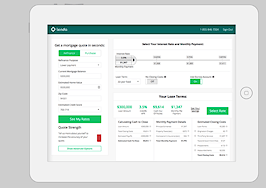- An investigation isn't guidance, but it can provide clues as to how the CFPB is interpreting co-marketing rules and regulations.
- Every participant in a co-marketing arrangement must pay a fair, proportionate price for his or her participation.
- Brokers should document what they're doing, value each piece of co-marketing material and train agents on compliance.
DENVER — “OK, people: Do not run your businesses based on videos made by mortgage brokers,” advised Brian Levy, an attorney at Kattan & Temple, at the RESPRO (Real Estate Settlement Services Providers Council) meeting today.
Levy was referring to panicked phone calls he received earlier this year when his clients saw a video that two mortgage brokers put on YouTube. The video said that Zillow is “illegal” — “and they knew that because somebody in an exam was told by an examiner that Zillow was illegal,” Levy explained.
Needless to say, videos like this are not legal advice. So Levy wants the industry to take a deep breath and think for a second before making major changes to business strategies — even though the Consumer Financial Protection Bureau (CFPB) is currently investigating Zillow’s co-marketing program.
“We don’t know anything,” he reminded the audience. “There’s no lawsuit. There are press reports that something is imminent and rumors that things are happening, but we haven’t been able to get our hands on anything.
“Even the CFPB would admit that rumors and investigations are not reliable sources of regulatory guidance,” he added.
So what do we know? Levy and Loretta Salzano, a partner at Franzen and Salzano, explained what the industry should take away from the fact that Zillow seems to be in the CFPB’s crosshairs right now.
“I think it is reasonable to assume this investigation applies to Zillow’s co-marketing program and how those programs allow lenders and Realtors to comply with RESPA,” Levy said, citing statements in recent earnings calls by Zillow’s CFO that note the company’s belief in its co-marketing program compliance.
Consent orders and enforcement
Most of the guidance that the CFPB has released surrounding co-marketing arrangements have been in consent orders — a controversial strategy that critics say doesn’t provide clear enough parameters for what activities are (or are not) compliant.
“Enforcement can give you clues about where the CFPB is headed and what concerns are, but that’s all they are — clues,” Levy said. “They are not statements of direction to your business. You need to understand what you’re doing in your own business and apply the law with your counsel appropriately.”
Zillow probably doesn’t technically qualify as a settlement service provider, Salzano said. “They’re a marketing company. They assist consumers looking for property, and they are licensed to perform certain settlement services.”
But that doesn’t matter to the CFPB, she added. “The idea is that even if you’re not a settlement service provider, you can fall under the CFPB’s jurisdiction as providing settlement services.”
RESPA Section 8 and HUD’s pro-rata guidance
Section 8 of RESPA (the Real Estate Settlement Procedures Act) outlines guidance on referrals and paying for leads, and the Department of Housing and Urban Development (HUD) has guidance on who pays for what in a co-marketing arrangements.
HUD dictates that agents and brokers creating co-marketing materials with settlement service providers must pay a “pro rata” rate — in which each entity is contributing an appropriate amount to the total.
And Section 8 of RESPA dictates that when selling leads, agents and brokers need to ensure that the following parameters are met:
- The item purchased should be a list of names — actual customer leads
- Payment for use of the list must reflect its “reasonable value”
- Payment for use of the list must not be based on the number of closed transactions generated from the list of names
- The seller of the leads must not endorse the purchaser of the leads
“If you say ‘I’m buying a lead from a real estate agent,’ clearly that real estate agent is going to be talking to the customer, and they’re probably going to say ‘Call Brian; he does a great job,'” said Levy.
That can be dangerous, so tread carefully: “It’s not realistic to put a gate up” around what your lead partners might say about you, but be very aware of and careful with any language that can be construed as an endorsement, Levy advised.
Managing compliance as a brokerage
Some of Levy’s clients are using different co-marketing platforms, but they don’t have any real idea of what their individual sales agents are doing on those platforms.
“The first step is getting your arms around what your people are doing,” he said. “If you’re involved in this kind of marketing and have given your salespeople the ability to do this on their own, you’ve got to know what you’re doing before you can even begin to make sure it’s compliant.”
And again: There is no official guidance (yet) from the CFPB around these arrangements. It has mentioned co-marketing in a case that the CFPB brought against Prospect Mortgage — and, of course, there’s the Zillow investigation — but neither of those contain actual official guidance that you can take and run with.
According to Levy and Saldano, there are two elements to this type of co-marketing arrangement to consider:
- Marketing materials
- Lead sharing
HUD will permit your co-marketing as long as the costs are proportionally split — which may be easier to prove using traditional media like print ads, radio and signage, and harder to apply to digital ads with locations that can be off-screen, shifting or temporary. So valuations of those ads should measure blended exposure and lead value, they said.
Typical co-marketing stumbling blocks
“We don’t have any insight into what the CFPB is looking at with Zillow,” said Levy, “but these are some of the questions we typically ask about co-marketing programs.”
- Does the co-marketing program enable RESPA violations? Consider paying a third party for ads instead of paying a referral source directly, confirm that the costs reflect reasonable value — and make sure that the Realtors’ costs are not being subsidized in exchange for referrals. “Many of these programs are subtly designed around this entire idea,” Levy noted. “That’s very dangerous and it shouldn’t happen.”
- What is your documentation and proof of compliance?
- Is the co-marketing arrangement coupled with any referral obligations outside of marketing? This might include pay-to-play sales techniques, the dreaded (and non-compliant) “endorsements” or any contractual “nudging” to use a specific provider.
- Has the lead given consent to share his or her information? “There are a lot of laws around the use of data and following up on leads that you need to make sure are addressed,” said Levy.
“It is challenging because there are more and more players in the space and the platforms are constantly evolving,” Salzano said. “Make sure you understand what it is you’re buying, what you’re doing, how you’re going to be featured on that platform with others — and make sure you’re really using what you’re buying,” she advised.
Setting guidelines
“There’s nothing worse than having a regulator ask you a question and you have to figure out ‘How should I have been managing that before?'” Levy noted. “The first thing they ask is about your compliance management program.
“They may not know how you should manage it, but they’ll ask you if if you have a plan in place,” he added.
To implement a plan, first inventory your company’s use of co-marketing, then ensure you’re sharing cost based on the proportional value of the co-marketing material.
Other tips for setting guidelines, Levy said:
- Consider the use of an agreement to spell out the terms of relationship
- Consider capping the percentage of cost you (or your partner) will cover
- Measure the value of the marketing opportunity, not the value of referrals
- Paying the third-party web marketer (like a newspaper for an ad) directly has better optics than reimbursing individuals
- Don’t pay for leads you aren’t going to use
Salzano noted that brokers should:
- Determine what they’re purchasing so they know exactly what it is
- Value every element of the marketing material
- Ensure that the seller has the authority to sell and is appropriately licensed
- Make sure the messaging is clear and not misleading — if templated materials aren’t clear, don’t use them
- Remember: Companies act through their employees and agents. “I hear companies say ‘as long as they’re paying for it, agents can do what they want,'” Salzano said. “That isn’t going to protect you from liability. With independent contractors, you still need to be sensitive to what they’re doing under your brand. And I suggest you provide guidance so they’re not going to lead to reputational risk, even if you can’t dictate what they do.”
The good news
“The good news about all these moving parts and variations on the theme is: When examiners look at this in our experience, they’re struggling with the same things we are,” Salzano concluded. “They don’t know. There’s been a lot of investigations of these types of arrangements from state banking regulators and depository institutions or the FDIC, and they don’t know, either.
“So if you can show them, maybe, not that you’re doing it by the penny or pixel pro rata every single time, but you’re not doing it on a prohibitive basis, you got a third party to value it and you have these tools — that goes a very long way.”





